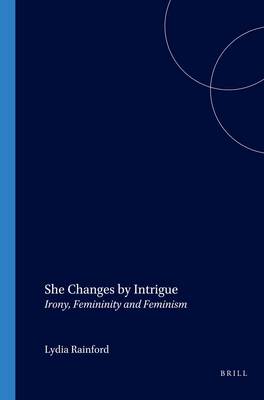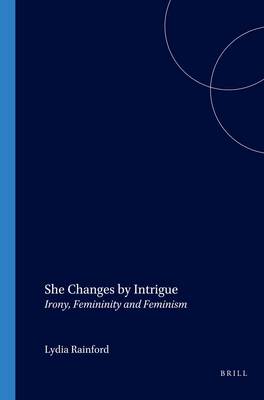
- Afhalen na 1 uur in een winkel met voorraad
- Gratis thuislevering in België vanaf € 30
- Ruim aanbod met 7 miljoen producten
- Afhalen na 1 uur in een winkel met voorraad
- Gratis thuislevering in België vanaf € 30
- Ruim aanbod met 7 miljoen producten
Zoeken
Omschrijving
Contemporary feminist theorists have implied a special affinity between women and irony because of their 'double' relation to the prevailing order of things: both speak from within this order while remaining 'other' to it in some way. Irony can be regarded as the obvious mode in which a feminist might speak, as it reflects her relation to the patriarchal structure while refusing to validate the truth of the current sexual hierarchy. She Changes by Intrigue undertakes the first sustained analysis of the parallels between irony, femininity and feminism. By retracing the association of these terms through canonical and contemporary continental philosophy, the book seeks to illuminate a notion of sexual agency that has until now remained shadowy, in spite of its prevalence.
Examining the recurrence of the 'ironic feminine' in texts by Kristeva, Hegel, Kierkegaard, Irigaray, Derrida and Kofman, it argues that a radical revaluation of the legacy of patriarchal thought in feminism is necessary before irony can be embraced as a feminist strategy. In this context, She Changes by Intrigue offers a new reading of what it means to write as a feminist 'subject'.
This volume will be of interest to students and academics working in the fields of gender studies, continental philosophy and critical / cultural theory.
Examining the recurrence of the 'ironic feminine' in texts by Kristeva, Hegel, Kierkegaard, Irigaray, Derrida and Kofman, it argues that a radical revaluation of the legacy of patriarchal thought in feminism is necessary before irony can be embraced as a feminist strategy. In this context, She Changes by Intrigue offers a new reading of what it means to write as a feminist 'subject'.
This volume will be of interest to students and academics working in the fields of gender studies, continental philosophy and critical / cultural theory.
Specificaties
Betrokkenen
- Auteur(s):
- Uitgeverij:
Inhoud
- Aantal bladzijden:
- 260
- Taal:
- Engels
- Reeks:
- Reeksnummer:
- nr. 6
Eigenschappen
- Productcode (EAN):
- 9789042016071
- Verschijningsdatum:
- 1/01/2005
- Uitvoering:
- Paperback
- Formaat:
- Trade paperback (VS)
- Afmetingen:
- 150 mm x 220 mm
- Gewicht:
- 444 g

Alleen bij Standaard Boekhandel
+ 274 punten op je klantenkaart van Standaard Boekhandel
Beoordelingen
We publiceren alleen reviews die voldoen aan de voorwaarden voor reviews. Bekijk onze voorwaarden voor reviews.











